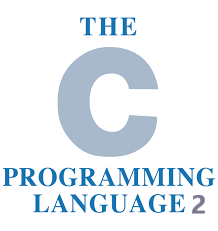C Programming: Declarations and Initializations » Find Output of Program
-
Declarations and Initializations – General Questions
-
Declarations and Initializations – Find Output of Program
-
Declarations and Initializations – Point Out Errors
-
Declarations and Initializations – Point Out Correct Statements
-
Declarations and Initializations – True / False Questions
-
Declarations and Initializations – Yes / No Questions
1. What is the output of the program given below?
#include<stdio.h>
int main()
{
enum status { pass, fail, atkt};
enum status stud1, stud2, stud3;
stud1 = pass;
stud2 = atkt;
stud3 = fail;
printf("%d, %d, %d\n", stud1, stud2, stud3);
return 0;
}
int main()
{
enum status { pass, fail, atkt};
enum status stud1, stud2, stud3;
stud1 = pass;
stud2 = atkt;
stud3 = fail;
printf("%d, %d, %d\n", stud1, stud2, stud3);
return 0;
}
A. 0, 1, 2
B. 1, 2, 3
C. 0, 2, 1
D. 1, 3, 2
2. What will be the output of the program in 16-bit platform (Turbo C under DOS)?
A. 2
B. 4
C. vary from compiler
D. Linker Error: Undefined symbol ‘i’
3. What is the output of the program?
A. 20
B. 0
C. Garbage Value
D. Error
4. What is the output of the program in Turbo C (in DOS 16-bit OS)?
#include<stdio.h>
int main()
{
char *s1;
char far *s2;
char huge *s3;
printf("%d, %d, %d\n", sizeof(s1), sizeof(s2), sizeof(s3));
return 0;
}
int main()
{
char *s1;
char far *s2;
char huge *s3;
printf("%d, %d, %d\n", sizeof(s1), sizeof(s2), sizeof(s3));
return 0;
}
A. 2, 4, 6
B. 4, 4, 2
C. 2, 4, 4
D. 2, 2, 2
5. What is the output of the program
#include<stdio.h>
int main()
{
struct emp
{
char name[20];
int age;
float sal;
};
struct emp e = {"Tiger"};
printf("%d, %f\n", e.age, e.sal);
return 0;
}
int main()
{
struct emp
{
char name[20];
int age;
float sal;
};
struct emp e = {"Tiger"};
printf("%d, %f\n", e.age, e.sal);
return 0;
}





